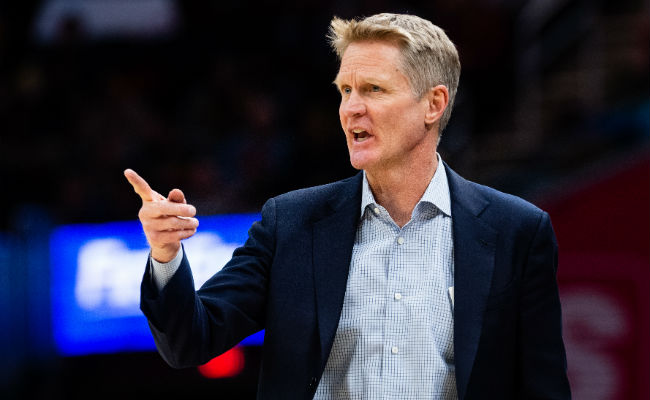
The 2019 NBA offseason was one of the craziest in history, with a number of superstars changing teams via free agency or trades and the balance of power in the league feeling spread out for the first time since the start of the Big 3 era in Miami.
Kevin Durant and Kyrie Irving paired up in Brooklyn (with both deals reported before free agency even began, part of a number of early deals that sparked an NBA investigation), Jimmy Butler left Philly for Miami in a sign-and-trade, Al Horford joined the Sixers, D’Angelo Russell ended up in Golden State via sign-and-trade, and all of that (and lots more) happened within the first eight hours of free agency being open. Later Kawhi Leonard would join the Clippers along with Paul George via trade, setting off another round of aftershocks including Russell Westbrook being dealt to Houston.
All of this started with Anthony Davis’ trade request finally being granted in June when it was agreed upon that he would be sent to the Lakers. Davis is the most recent star to request a trade prior to their final season of their second contract, joining Kawhi Leonard and Paul George, and that trend is “disturbing” to some including Warriors coach Steve Kerr.
Kerr recently joined the Warriors Insider Podcast on NBC Sports Bay Area and discussed his issues with what he thinks is a serious problem for the NBA.
“I’m talking more about the Anthony Davis situation,” Kerr said on The Warriors Insider Podcast. “Where a guy is perfectly healthy and has a couple years left on his deal and says, ‘I want to leave.’ That’s a real problem that the league has to address and that the players have to be careful with.
“When you sign on that dotted line, you owe your effort and your play to that team, to that city, to the fans. And then [once the contract runs out] it’s completely your right to leave as a free agent. But if you sign the contract, then you should be bound to that contract.
Kerr would elaborate further, pointing to Kevin Durant and LeBron James as examples of players who did it the right way, playing out their deals before leaving as a free agent.
“There’s a way to move and a way to not move,” Kerr said. “What LeBron did, played out his contract. What Kevin did both when he arrived at Golden State and when he left. You sign contracts, you play them out and you move on. That’s how it should be done.
“But it’s a little disturbing that there has been some action that happens before contracts are up, where teams are sort of held hostage and the league is sort of held hostage. I’m not a big fan of that. That’s damaging for everybody.”
As the coach of a team, it’s understandable that Kerr would feel this way. We saw last season how awkward the situation in New Orleans was for Alvin Gentry — who it should be noted was an assistant on Kerr’s staff in Golden State. That’s likely why Kerr feels so strongly about this, but his point is also a bit misguided.
A player doesn’t really have much control over where he signs his second contract, especially as a max player because as a restricted free agent the team you’re with is going to match. So, as you prepare for your first actual free agency, if you realize you aren’t going to stay it benefits the team you’re with to ask them to trade you before so they get something in return. Kerr did address that, saying if you come to an agreement with the team that’s one thing, but felt Davis went about it poorly.
However, as Rich Paul tells it, the Pelicans were simply non-responsive to their efforts to start those kinds of discussion, and as such he went public to force their hand. Ultimately, the Pelicans did get quite the haul in return and, coupled with draft luck to land the top pick, they are arguably in a better place now than they ever were with Davis in town.
Like with the tampering discussion, there’s no real way to enforce any regulations on trade requests. Players will talk to each other, players will discuss their future prior to entering free agency, and, ultimately, will reach those decisions long before league mandated dates arrive. As such, players that realize they won’t be sticking around will push for a trade to get out sooner and in part to help the team recoup some kind of value for them.
As for whether we’ve entered “slippery slope” territory with trade requests, while there have been more in recent years there are only a select number of players that are at the level to really push for such a trade and have it impact the league so dramatically. The “trend” will surely continue in the sense that some players will push out early, but to think this will become a massive issue that will impact every team on a regular basis is rather silly.






